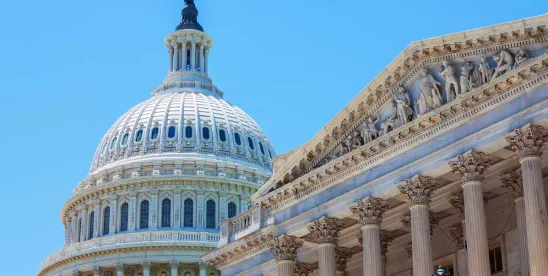On June 4, 2024, a number of Congressional Democrats (10 Senators; 28 Congressmen) sent a letter to Chairman Gensler of the Securities & Exchange Commission, urging that the SEC “enforce[] [] existing SEC climate disclosure-related guidance” while the legal challenge to the SEC's mandatory disclosure rule is pending. In particular, the letter suggested action on the SEC's 2010 guidance on climate-change developments, and that the SEC “remind issuers that U.S. companies that are subject to alternative climate-related disclosure regimes must comply with those reporting regimes, including those from California and the European Union.”
The issuance of this public letter again raises the profile of those who criticized the SEC's mandatory climate disclosure rule as being insufficient; the letter asserts that “the rule was significantly weakened in response to intense corporate lobbying over the past two years, in ways that offer too much discretion to corporate managers to decide what information must be disclosed.” (The letter voiced particular concern over the “materiality qualifier” to disclosures of Scope 1 and Scope 2 GHG emissions, which it claimed would “allow[] corporate managers too much discretion to decide whether they wish to disclose this information.”) While conservative challenges to the SEC's mandatory climate disclosure rule often receive greater attention (for good reason, as those challenges could negate the rule entirely), it is important to recall that the SEC is facing pressure from the other side of the aisle as well. These statements by zealous supporters of mandatory climate disclosures apply pressure on the SEC to fully defend the proposed rule, as well as to pursue other climate-focused enforcement activities.
At the very least, this continued pressure will ensure that climate issues remain on the SEC's agenda, regardless of the outcome with respect to the legal challenge to the mandatory climate disclosure rule.
We write regarding the SEC’s final climate risk disclosure rule. While the rule is an important step forward that will provide investors with key information about publicly traded companies’ climate risks and emissions, the rule was significantly weakened in response to intense corporate lobbying over the past two years, in ways that offer too much discretion to corporate managers to decide what information must be disclosed. On April 4, 2024, the Commission exercised its discretion to stay the final rule pending the completion of judicial review. One important way that you can begin to address the final rule’s shortfalls during this time is to ensure robust enforcement of existing SEC climate disclosure-related guidance. Should the rule survive its legal challenges, the Commission should then focus its efforts on vigorous implementation and enforcement of the rule.




 />i
/>i

